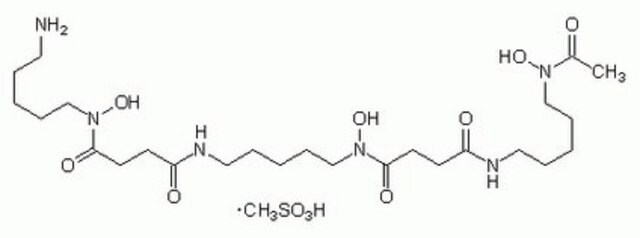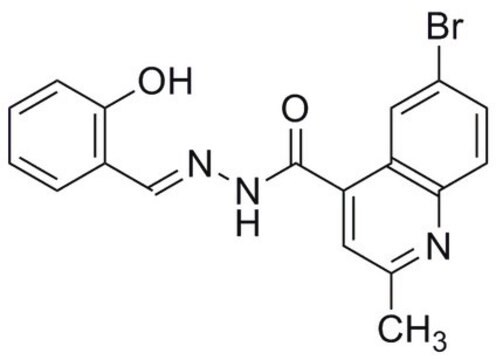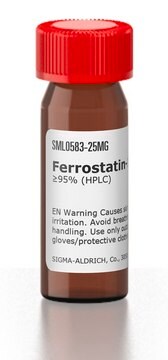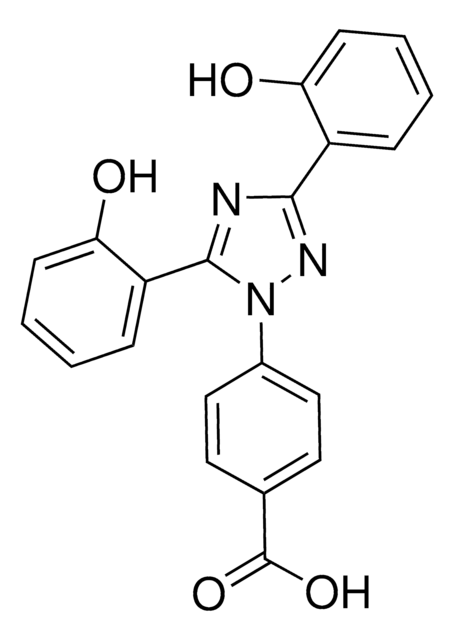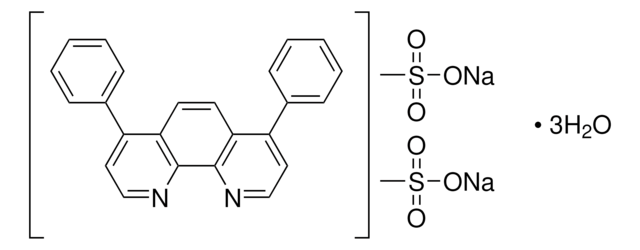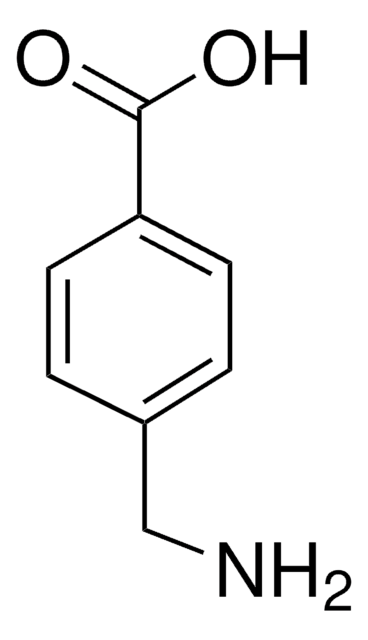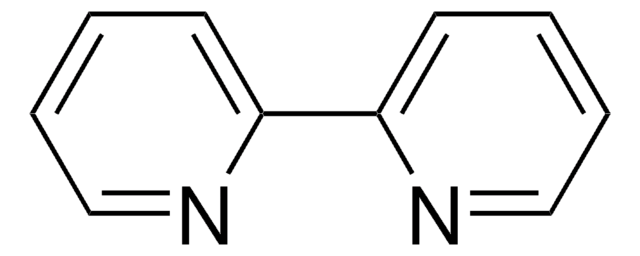528110-M
PIH
A cell-permeable, non-toxic tridendate iron (Fe3+) chelator of the aroyl hydrazone class.
Synonym(s):
PIH, pyridoxal isonicotinoyl hydrazone, Iron Chelator III
About This Item
Recommended Products
Quality Level
Assay
≥99% (HPLC)
form
solid
reaction suitability
reagent type: chelator
manufacturer/tradename
Calbiochem®
storage condition
OK to freeze
protect from light
color
yellow
solubility
DMSO: 5 mg/mL
slighlty acidic medium: soluble
storage temp.
2-8°C
InChI
1S/C14H14N4O3/c1-9-13(20)12(11(8-19)6-16-9)7-17-18-14(21)10-2-4-15-5-3-10/h2-7,17,19H,8H2,1H3,(H,18,21)/b12-7+
InChI key
HOYFGBFEIXEDEL-KPKJPENVSA-N
General description
Warning
Reconstitution
Other Notes
Thomas, S.R., et al. 2001. J. Immunol.166, 6332.
Hermes-Linda, M., et al. 2000. Biochim. Biophys. Acta1523, 154.
Blaha, K., et al. 1998. Blood11, 4368.
Richardson, D.R., and Ponka, P. 1998. J. Lab. Clin. Med.131, 306.
Richardson, D.R.,et al. 1995. Blood86, 4295.
Richardson, D.R., et al. 1994. J. Lab. Clin. Med.124, 660.
Ponka, P., et al. 1988. Biochim. Biophys. Acta967, 122.
Ponka, P., et al. 1984. Biochim. Biophys. Acta802, 477.
Ponka, P., et al. 1979. FEBS Lett.97, 317.
Legal Information
Storage Class Code
11 - Combustible Solids
WGK
WGK 1
Flash Point(F)
Not applicable
Flash Point(C)
Not applicable
Certificates of Analysis (COA)
Search for Certificates of Analysis (COA) by entering the products Lot/Batch Number. Lot and Batch Numbers can be found on a product’s label following the words ‘Lot’ or ‘Batch’.
Already Own This Product?
Find documentation for the products that you have recently purchased in the Document Library.
Customers Also Viewed
Our team of scientists has experience in all areas of research including Life Science, Material Science, Chemical Synthesis, Chromatography, Analytical and many others.
Contact Technical Service